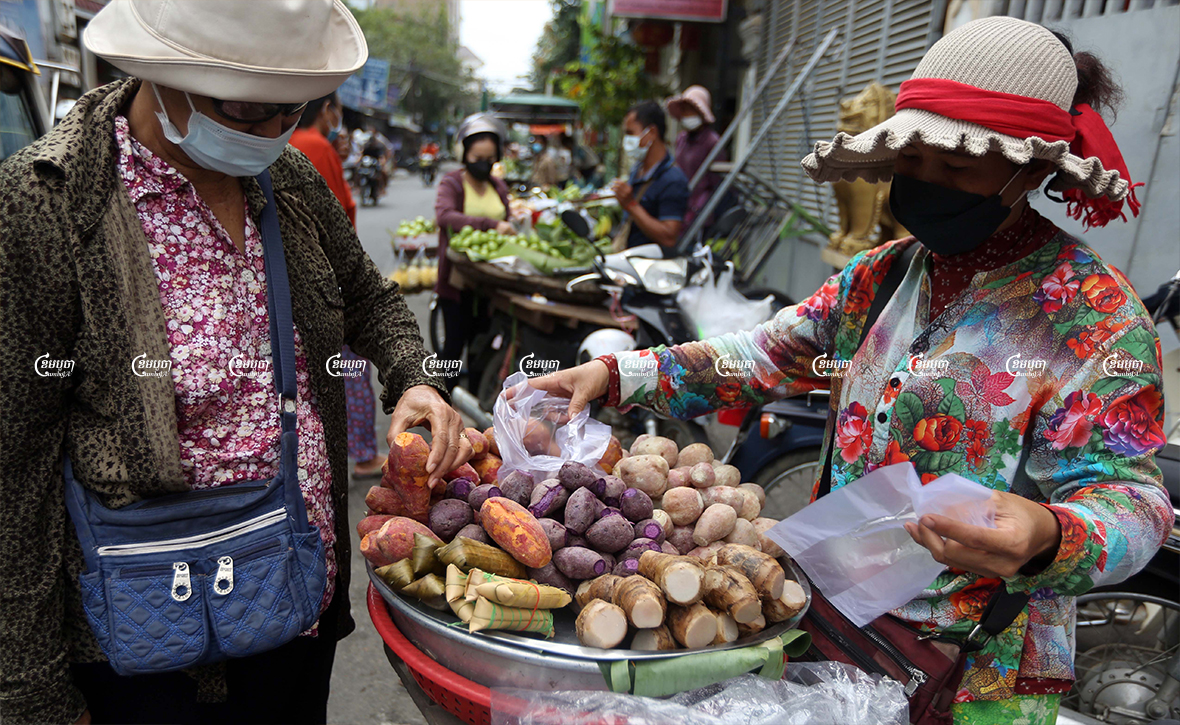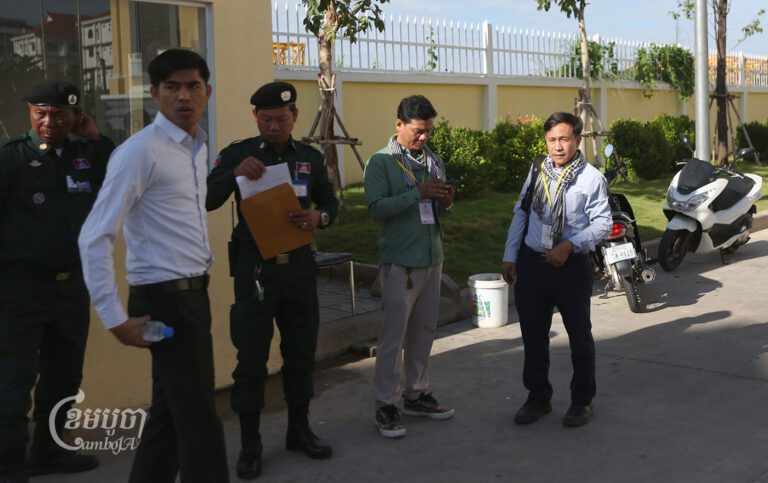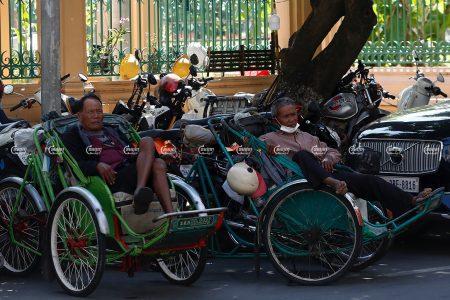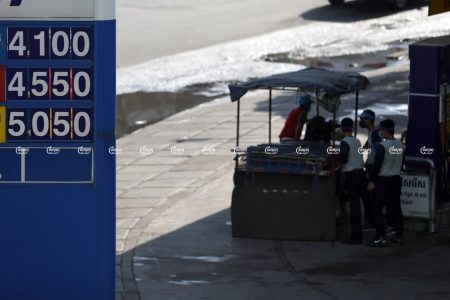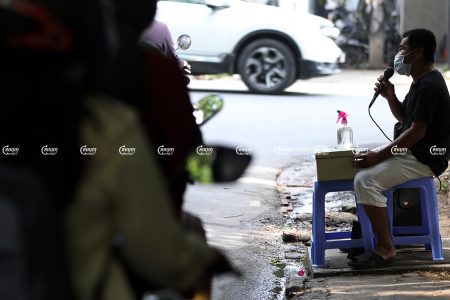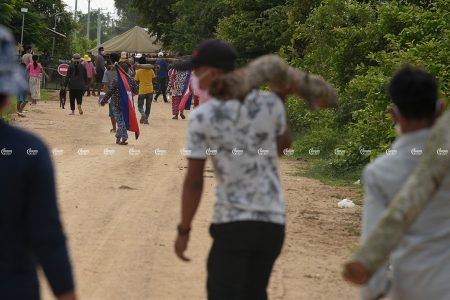A new training and investment program for female entrepreneurs will target street vendors struggling to stay afloat during the pandemic.
Five organizations, including USAID, announced last Friday they will provide funding to support small-scale street businesses. The funding will target a total of 120 female street vendors, 39 in Phnom Penh and 81 in the provinces of Battambang, Siem Reap, and Preah Sihanouk. The female participants will each receive $300 in funding upon completion of small business management training from local non-governmental organizations.
The training will be implemented by the NGOs Advocacy and Policy Institute (API), the Coalition for Partnership in Democratic Development (CPDD) and the Independent Democracy of Informal Economy Association (IDEA).
“Although this informal sector has contributed to socio-economic development and job creation, those women street vendors are not protected by law,” read a statement from the organizations, which also said such vendors are excluded from social services and can be subject to abuse from local authorities.
Som Mealea, 35, sells bread on a street corner in BKK II in Phnom Penh. She is set to participate in the street vendor program and says it’s become increasingly difficult to make a living even as pandemic restrictions ease.
“I have to pay bills for electricity, daily food to feed my children, and to pay a loan of $3,500 to buy a tuk-tuk for my husband at a rate of $150 per month,” Mealea said.
She said that during the pandemic, her husband has not been able to drive the tuk-tuk, meaning the family relies on her income.
“Before COVID-19, I could earn around $20 a day, but right now only $5-10. Sometimes I cannot even sell a little thing,” Mealea said.
“The security guards also ban us from selling [on the street] because [they say it causes] disorder and traffic jams. They come two times per day to kick us out, so I have to drive to another place than come back to sell normally.”
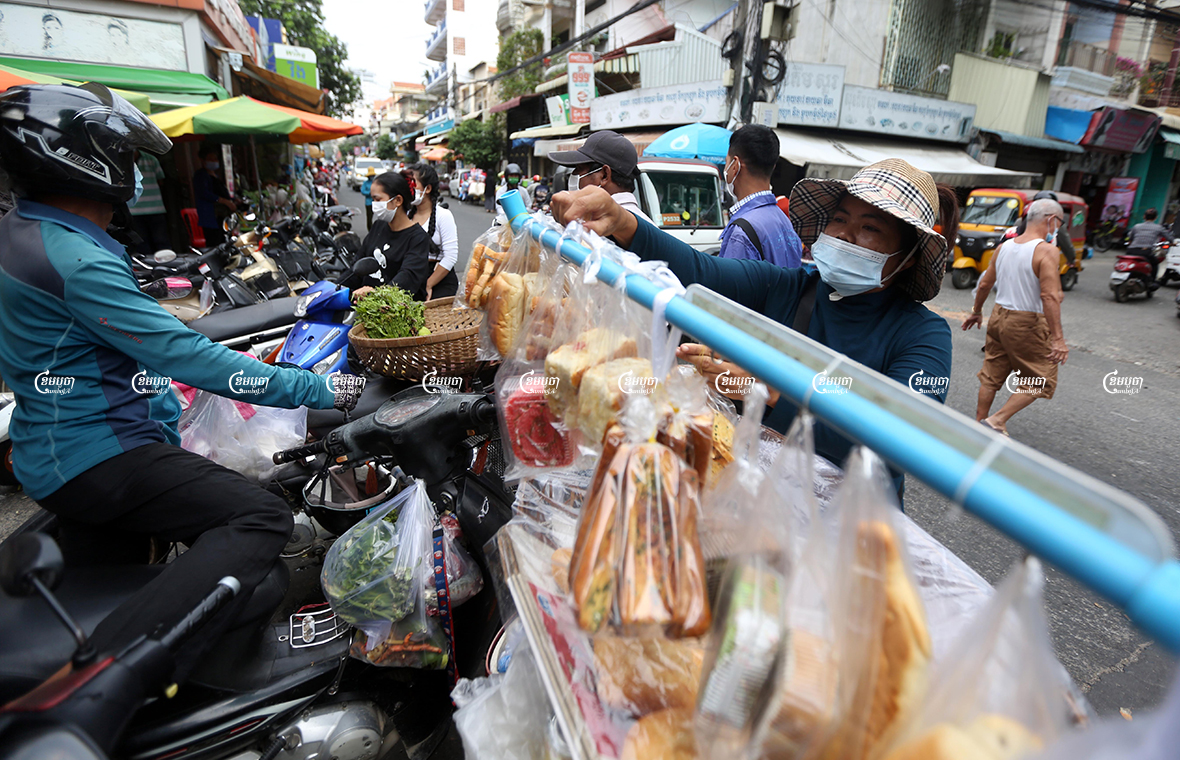
According to a 2019 Oxfam survey, in Cambodia there are about 1,673,390 street businesses or vendors, equal to about 10 percent of the population. About 16,419 of these vendors are based in Phnom Penh and 75 percent are women.
The survey identified challenges for vendors even before the pandemic, such as low incomes and high cost of living.
Yuk Sreynip, is a 26-year-old nail artist who works near O’russei market and will also be included in the entrepreneur project. Sreynip said that since the pandemic began, customers have been afraid to visit her business.
She said she rents her space for about $100 per month. She can earn about one to three dollars a day, but sometimes earns nothing.
“As you see now it is 11:00 am, there are no customers coming yet,” she said to a reporter.
With few customers, Sreynip tearfully said it’s difficult for her to support her elderly mother.
“If I cannot save enough to pay for renting this small space in front of the motorcycle shop, they will stop renting fto me. So I just sit and wait for customers day by day, and borrow money from others” she said.
She said IDEA supported her a few times and helped her to think about her business during COVID-19. As part of the new program, IDEA also promised to give her $300 to operate and extend her business, Sreynip said.
Vorn Pao, president of IDEA, said female street vendors have no legal support from government officials.
“The authorities don’t give them value or have legal support for them. Instead of pushing them to sell from one place to another, why not give them a specific location to sell comfortably,” he said.
Pao said vendors are forbidden to sell at special economic zones. In Sihanoukville, he added, street vendors are treated like thieves who need to pick up their luggage and run from the police.
“It is discrimination against them. How about rich people who can run restaurants and hotels? No one discriminates [against them],” he said, denouncing authorities who exploit vendors by making them pay “security fees” to sell their wares.
He said the new entrepreneurship program will provide training in digital management for small businesses, including how to track and report finances. Besides the $300 to vendors, IDEA will provide additional technical support and membership in its organization.
Besides the help from civil society, Pao called on the government to prepare legal protections for informal street vendors to help them access additional support.
Toch Channy, director general of the technical department of the Ministry of Social Affairs, said the Ministry of Labour and Vocational Training is mainly tasked with supporting informal workers.
“I think it’s a good plan if they are really willing to help the poor,” he said of the new project, though he was skeptical of the involvement of USAID. “It’s just my interest, USAID’s money to support target groups in the poor community is often politically fraudulent and this is my concern.”
However, Heng Sour, spokesman for the Labour Ministry, praised the new project. He said it is in accordance with government policy to protect and promote small-to-medium-sized-enterprises (SMEs) and the informal economy.
He said during the pandemic, the government has had a policy to support SMEs through tax measures and training in human resources. Street vendors who are struggling can register in their commune to be recognized for social support.
“If they are under those [poor] conditions, they will get help from our government. In the future, we will find mechanisms for street vendors to get healthcare with some payment conditions,” Sour said.


